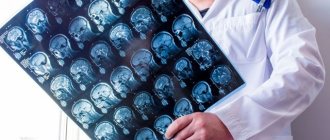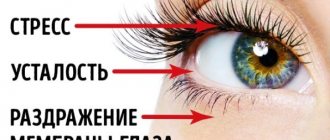the whole list
Dizziness is one of the most common reasons why patients visit a doctor. Currently, there are about 80 diseases and conditions that can be accompanied by a feeling of dizziness. These include: diseases of the cardiovascular, endocrine, nervous systems, pathology of the organ of vision, blood diseases, head and neck injuries, nutritional disorders, poisoning, stress, depression, as well as pathology of the middle and inner ear.
Regardless of the root cause, dizziness leads to a deterioration in general physical condition and performance (up to complete disability), and can lead to depression and fear of falling; some patients stop leaving home and limit their life activities - all this, of course, ultimately affects the quality of life.
Thus, timely identification of the cause of dizziness and timely treatment are very important.
Numerous studies have shown that the most common cause of dizziness is pathology of the vestibular system at its peripheral level, in other words, outside the central nervous system. It is peripheral vestibular (and auditory) disorders that are dealt with by an otoneurologist.
The most frequently asked questions during an otoneurologist appointment:
- What additional studies are needed to prepare for a consultation with an otoneurologist?
You can undergo an audiological examination in advance ( but it is not necessary to do this before the consultation ) and consult with a neurologist. No other special studies are needed in advance, since there are a large number of diseases accompanied by dizziness, and it is impractical to carry out all the studies to identify the root cause. After the examination, the otoneurologist will determine the range of necessary additional examinations.
Cephalgologist in Moscow
At the branch of “ENT Clinic No. 1” in Moscow City, cephalologist, neurologist, otoneurologist, candidate of medical sciences and researcher of the department of vestibulology and otoneurology of the National Medical Research Center of the FMBA of Russia Kira Vladimirovna Overchenko are receiving treatment. If you are looking for a doctor to see for severe headaches, you will find an experienced, caring and innovative specialist with us.
Make an appointment with our cephalgologist in Moscow by phone or using your personal doctor’s card.
Recommendations before visiting a doctor
At the beginning of the appointment, the patient must voice his complaints to the specialist. To provide your doctor with more complete information, it is recommended to keep a diary of pain attacks. It should note the nature of the pain, its location, strength, frequency of occurrence, and duration. It is also necessary to pay attention to the factors that provoke attacks and, conversely, contribute to their cessation.
If the patient suffers from pressure changes, you need to draw up a table of blood pressure readings in the morning and evening for the last 2-3 days.
The neurologist should be shown a list of medications taken (with exact names and dosage).
It is also advisable to write down questions for yourself that will be asked to the doctor after diagnosis (about the cost and duration of the therapeutic course, prognosis of the disease, the need for consultation with related specialists, etc.).
Before the examination, you should take a shower and put on clean and comfortable clothes.
Department of Head and Neck Pathology
PURPOSE OF THE DEPARTMENT
In recent years, there has been a stable trend in the world towards a constant increase in the number of cases of cancer.
This factor is facilitated by the presence of a wide morphological variety of neoplasms, both benign and malignant, in the head and neck area. The Department of “Head and Neck Pathology” at the Federal Scientific and Clinical Center of the Federal Medical and Biological Agency of Russia is aimed at providing medical services to patients with various diseases in the field of “Maxillofacial Surgery” and “Surgery for Tumor Diseases of the Head and Neck”. The department performs a full range of operations for benign and malignant tumors, taking into account all international standards. Surgical treatment of pathologies at the Federal Scientific and Clinical Center of the Federal Medical and Biological Agency is carried out using advanced equipment using high-tech techniques. The doctors of the department, in the most organ-preserving way, but in compliance with all the rules of ablastics and oncological approach, can operate on such types of pathologies as: tumors of the oral cavity, nose, oro-, nasal- and laryngopharynx, larynx, skin, soft tissues, salivary and thyroid glands , rare forms of tumors and others.
Why is it important and necessary to be treated at the Federal Scientific and Clinical Center of the Federal Medical and Biological Agency?
- The presence at our center of such departments as Otorhinolaryngology, Neurosurgery, Dentistry, Chemotherapy, Ophthalmology allows us to provide medical care with the maximum multidisciplinary approach.
- Treatment tactics are developed taking into account the opinions of all specialists in the field and related specialties.
- Modern diagnostic techniques make it possible to clarify the diagnosis and draw up a treatment plan in the shortest possible time.
- The use of advanced surgical techniques by maxillofacial surgeons can reduce the time of postoperative hospital stay to 1-2 days.
The following surgical interventions are performed:
- Treatment of benign and malignant diseases of the head and neck (surgical treatment of neoplasms of the bones of the facial skeleton, soft tissues of the head and neck)
- Treatment of injuries of the maxillofacial area (treatment of fractures of the upper and lower jaws, treatment of fractures of the zygomatico-orbital complex, zygomatic-naso-orbital complex)
- Reconstructive plastic surgery of the maxillofacial area (reconstruction of defects in the bones of the facial skull, soft tissues of the face and neck)
- Treatment of congenital and acquired deformities (post-traumatic changes, post-operative changes, age-related changes)
- Treatment of diseases of the salivary glands
- Treatment of diseases of the temporomandibular joint
- Treatment of inflammatory diseases of the maxillofacial area (abscesses of the face and neck, inflammatory diseases of the maxillary sinuses)
- All types of bone grafting of the alveolar ridge of the jaws
- Removal of complex impacted, dystopic teeth
- Dental implantation
What it is
Let's take a closer look at the procedure itself.
During an EEG, the doctor places small sensors on the patient's head that are connected to an encephalograph. The equipment records the received information and translates it into graphs that reflect EEG rhythms. The specialist evaluates the result obtained and forms his conclusion.
In some cases, the doctor asks the patient to perform certain actions, such as opening and closing his eyes. This is required in order to analyze indicators determined by current activity.
No special preparation is required before an EEG, which distinguishes it from many other studies.
It is only recommended to abstain from tea, coffee, energy drinks and other drinks that contain caffeine. They may influence diagnostic results.
Try to avoid stress and emotional stress on the eve of the study. These processes can affect brain activity.
During the examination, the patient must remove metal objects from the body, as they may affect the results.
An EEG can detect not only the presence of epilepsy, but also other serious illnesses, for example:
- consequences of injuries and surgical interventions;
- neoplasms;
- vascular pathologies;
- some other diseases of the brain and central nervous system.
All these diseases are very dangerous for the patient himself. That is why, if they are detected, you must immediately contact a doctor.
Neurologist
Which specialists should you see for regular headaches?
A neurologist is a specialist who diagnoses problems in the activity of the nervous system and blood vessels in the brain. If there is constant pain in the head, the doctor may prescribe the patient some types of examinations:
- encephalogram. It is performed for injuries, high blood pressure, cervical chondrosis, vegetative-vascular dystonia and sleep problems, which can cause headaches;
- CT scan. This type of diagnosis helps to see damage to the skull, areas of circulatory disorders in the brain, the presence of plaques in blood vessels, hydrocephalus, pathologies of brain functioning in children, the development of tumor processes;
- MRI is a modern and informative examination method that helps to see the most microscopic changes in the brain.
- angiography is a method of examining vessels after placing a diagnostic component in them. The component is placed into the venous bed under local anesthesia. The method is performed when other diagnostic methods are insufficient. Allows you to detect damage to blood vessels, disturbances in their development, and narrowing of the lumen.








